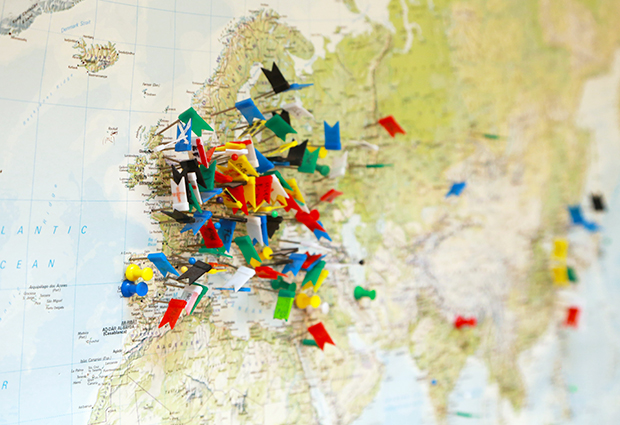
Opinion: Scientists must be part of the conversation
In changing times, the voice of researchers needs to be loud and clear: diversity, internationality and collaboration works

Take a walk around EMBL’s sites and you will discover physicists, chemists, geneticists, computer scientists, crystallographers, mathematicians and experts from many other fields working together, united by a shared curiosity to solve the molecular mysteries of life. One striking aspect is the variety of intellectual backgrounds. Another is the astonishing range of nationalities – more than 80 different countries are represented in our workforce.
This diversity creates a fascinating environment and it is also crucial to our success as an organisation. Solving the most important puzzles in modern life science requires diverse teams of people contributing new perspectives and complementary expertise. Between different countries, researchers are often trained in highly disparate ways. It’s extraordinarily enriching to move from one training environment to another and experience the variety of approaches that people of different nationalities use to answer questions.
Dialogue is not always easy to establish and the conversations may be difficult, but we all stand to gain from having these conversations.
This spirit of working together across borders is also reflected in numerous external partnerships and collaborations. One can see inspirational examples involving EMBL researchers: global genomics projects, where international consortia bring teams of scientists from all over the world together to obtain and analyse the data needed to allow better fundamental and clinical interpretation of the genetic code. Or epic journeys such as the Tara Oceans expedition – a four-year voyage around the world to study microorganisms in the world’s seas – that has enabled us to understand more about how some of the ocean’s least understood creatures survive and thrive. By bringing together international teams diverse in discipline, language and culture we are able to tackle problems that do not respect national boundaries and whose solutions are important to every one of us.
Clear messages needed
Nevertheless, EMBL does not operate in a bubble. The science ecosystem which we are part of and rely on is dependent on the free international exchange of people, ideas and knowledge. In recent times, parts of the world have gone through striking changes in policy and politics. Sometimes, these changes can serve to make things more difficult for research, especially when freedom of movement of people is either threatened or undermined. As a community, scientists need to be part of the conversation – to show how solid reassurances and clear messages of support for our values can help to preserve and enhance the European and international research landscape.
Scientists talk despite differences between nations, despite political tensions – and can inspire us to think differently about how we live and work together.
Intergovernmental research organisations like EMBL, CERN and the European Space Agency were explicitly set up after World War II, when there was a lot of thought about how to promote peaceful interactions between countries. And there are countless inspiring stories of researchers who have made massive contributions to science against the odds – from Nobel laureate Sydney Brenner who left apartheid-era South Africa, to the construction of the phenomenal SESAME synchrotron recently launched in the Middle East. The common thread in these examples is that dialogue leads to progress. Scientists talk despite differences between nations, despite political tensions – and can inspire us to think differently about how we live and work together.
Prioritise dialogue
Shared problems that confront the world’s nations – in healthcare, climate change, pandemic response, food security and many others – present massive challenges, but also opportunities to engage. The science community must also prioritise dialogue with society and policymakers; listening to public needs and concerns, while communicating the needs of our community. Dialogue is not always easy to establish and the conversations may be difficult, but we all stand to gain from having these conversations. Knowledge-based decision-making benefits every one of us.
We need to show the world that diversity, internationality and collaboration across borders works. The rest will follow.
Achieving this depends upon exchange being exchange amongst equals. We need to show the world that diversity, internationality and collaboration across borders works. The rest will follow. EMBL’s first director general, John Kendrew, described international activity as an important contributor to world peace. On the occasion of the 100th anniversary of his birth, his words seem as prescient today as they did more than forty years ago. Having the privilege of leading EMBL and seeing the benefits of internationality first-hand, gives me great confidence we will prevail.


